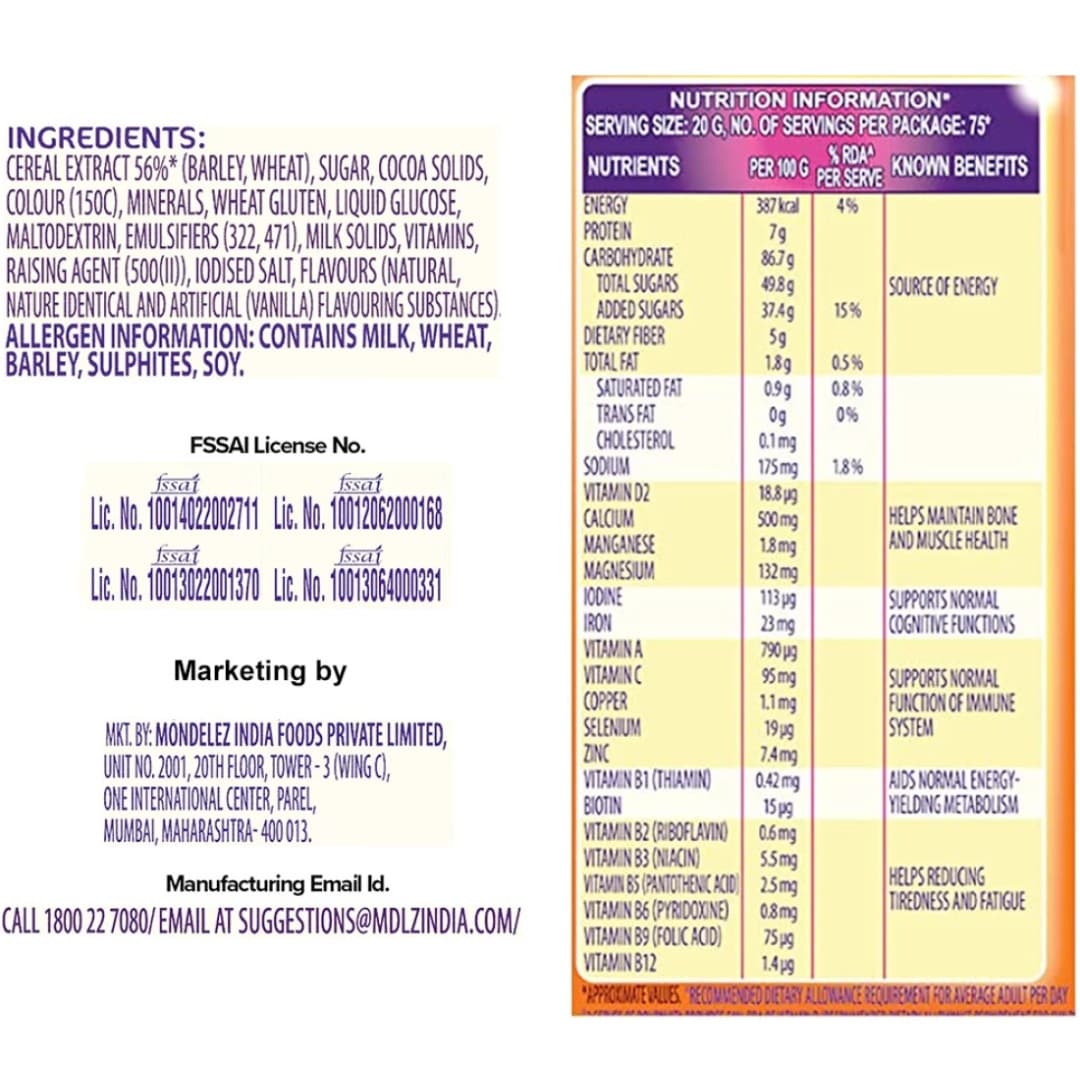
The National Commission for Protection of Child Rights has asked Mondelez International India Ltd. — the company that sells Bournvita — to review and withdraw all misleading advertisements, packaging and labels, citing non-adherence to mandatory disclosures of sugar content.
In a notice to Mondelez seen by BQ Prime, the child rights body has raised concerns over the product's packaging, which fails to give correct information regarding the contents used in Bournvita. It has asked the packaged foods company to apprise the commission with a detailed explanation on the matter, within the next seven days.
Bournvita, the 75-year-old brand, calls itself a “chocolate health drink” on its Instagram page with 4,43,000 followers. Recently, however, it is facing much flak for taking legal action against a social media influencer who released a video flagging the high sugar content in Bournvita.
While Modelez's legal action compelled the influencer to take down the video, the malted drink brand was trending on Twitter as people thought that the company had gone wrong in its approach. Many looked upon it as an act of bullying by the multinational foods company. Doctors and nutrition experts, however, are standing up in support of the creator.

The nutrition information displayed on a 1kg Bournvita jar.
The Indian Nutrition Rating rates the overall nutritional profile for packaged food by assigning it a rating from half-to-five stars, where the highest number of stars indicates the 'healthiest' food, that is better positioned to provide for the daily human need of nutrients.
"The logo shall be displayed closed to the proximity to the company name or brand name on front of the pack," said NCPCR.
It further highlighted that products that have added sugar content value of more than 10% of the total energy (kcal) provided by a 100 gm of product are required to display red-colour coding, according to the guidelines of Food Safety Standard Authority of India.
"But it has been prime facie observed that the product seems to have bypassed the threshold of added sugar content with the use of labels 'Maltodextrin' and 'Liquid Glucose', which needs to be mentioned under the title 'added sugars'," the child rights body said in its notice.
As per its own label, Bournvita has 37.4 gms of added sugar per 100 gms, corresponding to 15% of the total energy provided every serving.
The product also doesn't adhere to advertising guidelines of FSSAI, which require the product packaging to specify the number of servings of the food per day required for the claimed benefit, according to NCPCR.
The child rights body also highlighted that Bournvita fails to adhere to the guidelines issued by Central Consumer Protection Authority for prevention of misleading advertisements and endorsing such ads.
The Bournvita ads are in violation of 'children-targeting advertisements', which requires any health or nutritional claims or benefits to be adequately and scientifically substantiated by a recognised body.
The commission has also written to heads of FSSAI and Central Consumer Protection Authority to take necessary action, according to the notice.
Earlier, the Nutrition Advocacy in Public Interest, a think-tank working on nutrition policy, filed a complaint with the Department of Consumers Affairs, working under the Ministry of Consumer Affairs, Food and Public Distribution, alleging that the Bournvita ads do not disclose the sugar content, violating the provision of the Consumer Protection Act, 2019.
Days ago, FSSAI also issued a statement saying it has set up a dedicated advertisement monitoring committee to scrutinise claims made by food business operators, in a bid to ensure that they comply with the regulations. The move comes as a response to concerns about misleading claims made by food brands in their advertising campaigns.
FSSAI has stated that unsatisfactory responses to compliance requirements could attract penalties, if claims are not withdrawn.
These penalties could include fines of up to Rs 10 lakhs and cancellation of the license in case of repeated offenses.
The food regulatory body, however, did not specifically refer to the Bournvita issue.
Essential Business Intelligence, Continuous LIVE TV, Sharp Market Insights, Practical Personal Finance Advice and Latest Stories — On NDTV Profit.























